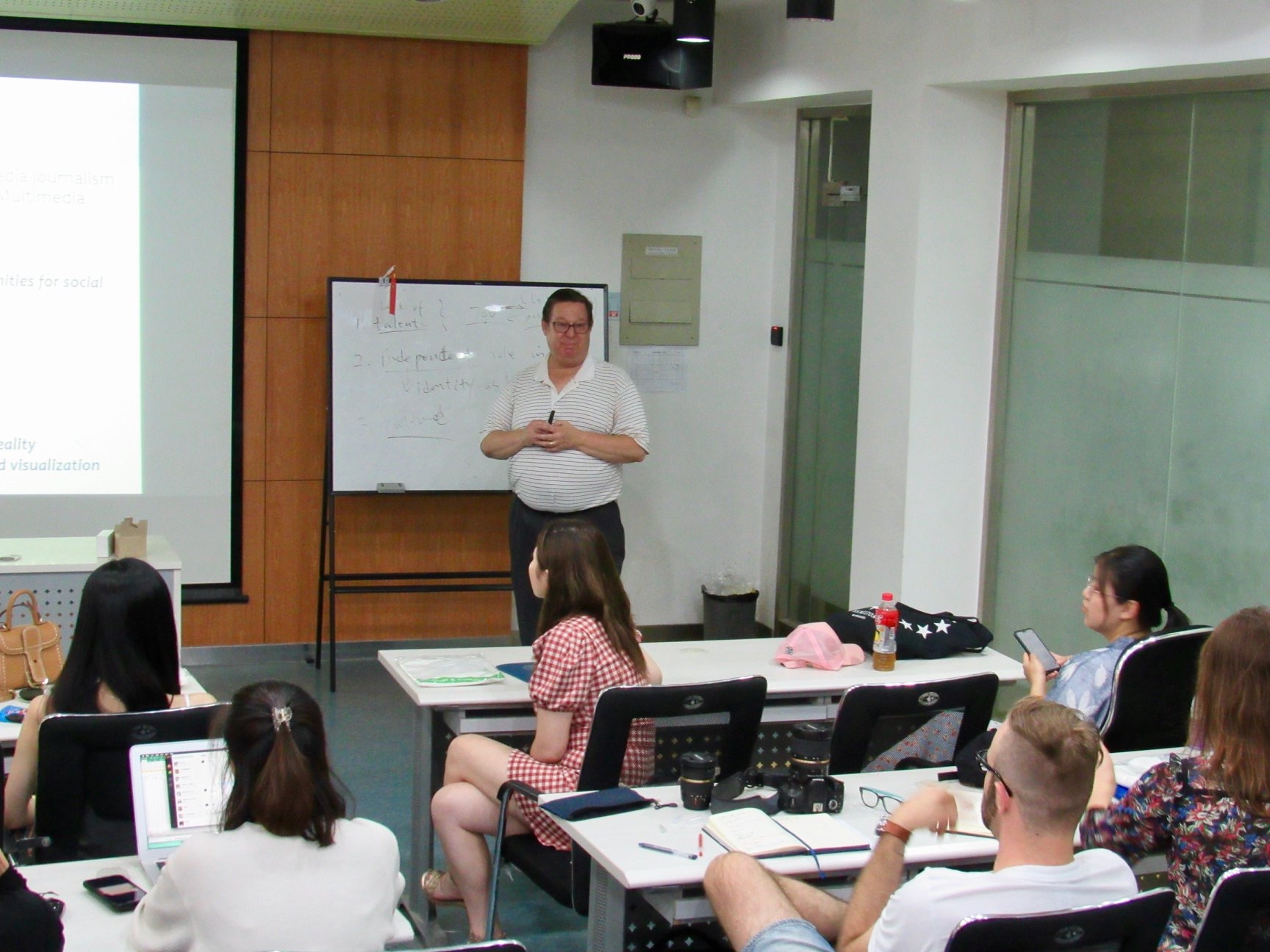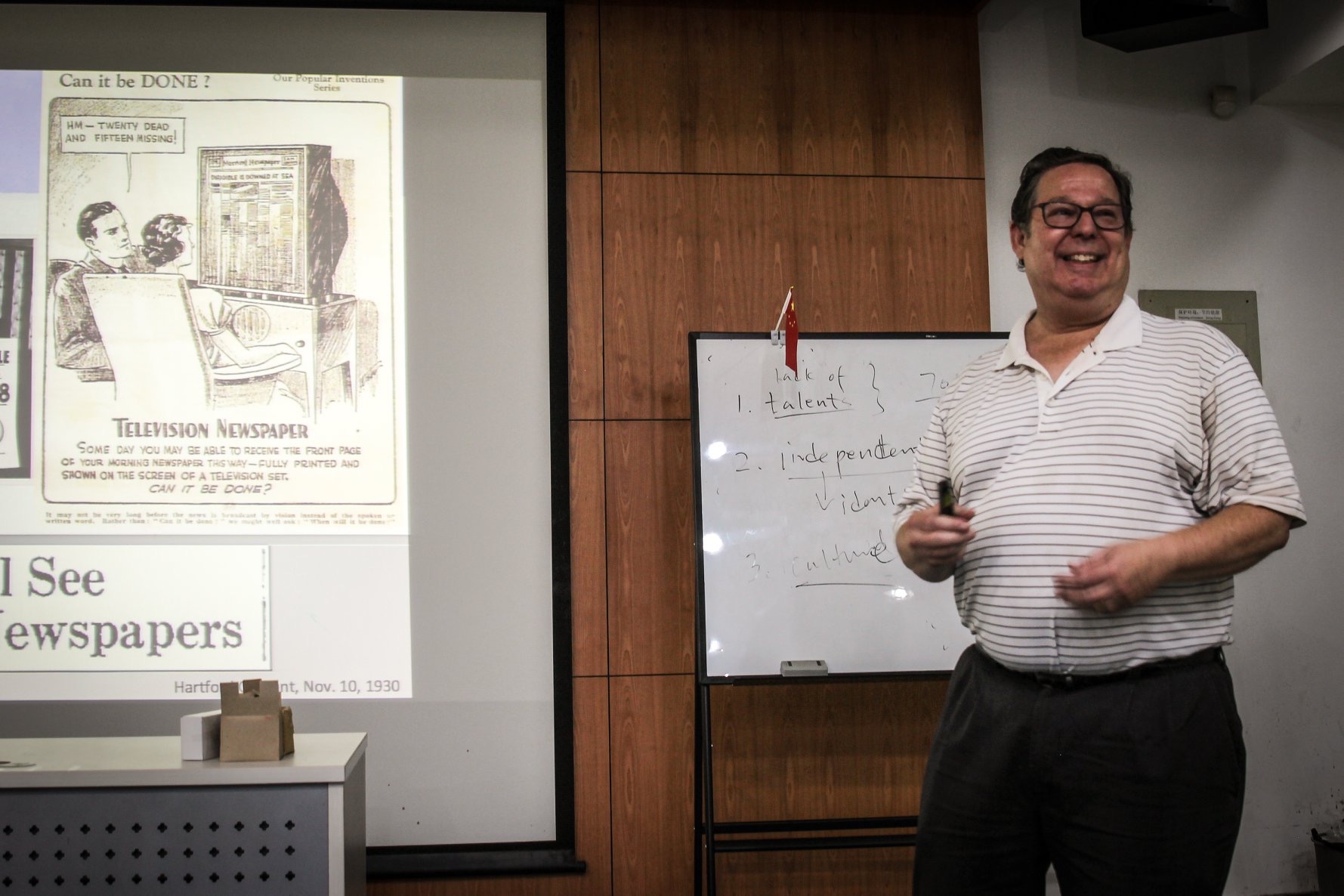Rick Dunham, a visiting professor in the School of Journalism and Communication and co-director of the Global Business Journalism Program at Tsinghua University, has fully immersed himself in Chinese history, food, art and culture since coming to China in 2013. He has been to the Great Wall 35 times, from its western terminus in Gansu to the Korean border, visited more than 20 provinces, and closely followed China's development.
As China gears up to host the 20th National Congress of the Communist Party of China (CPC) on October 16, Prof. Rick, a former journalist in the US with more than 35 years of experience, shared his thoughts on Tsinghua’s and China’s development over the years, shed light on the significance of the CPC’s National Congress in China's development, and discussed what he looked forward to in this year's congress.
Here is the full interview with Prof.Rick:
Q: How would you describe your Tsinghua experience as a faculty member?
Rick: It has been an honor and a pleasure. My colleagues and students have been welcoming and helpful as we all share an exciting cross-cultural experience. Tsinghua is the top university in China, so it is not necessary to say that the students are exceptional. But they are. The students inspire me. They are eager to learn. They embrace innovation and new ways to communicate more effectively. I am in awe of the academic accomplishments of my fellow professors and I thank them for helping me become a better professor each semester. I feel like we are a big, diverse family.
Q: Since you have been at Tsinghua for the last five years, what are some of the biggest changes you have noticed at the university during the period?
Rick: The biggest changes are the rapidly increasing internationalization of the campus and a technological revolution. There are more international students, there are more courses in foreign languages, there are more visiting scholars from around the world, and there are more partnerships with prestigious international universities. On the technology front, the journalism school has opened a state-of-the-art Futures Media Lab and has excellent equipment for Chinese and international students to produce multimedia content. Our historic journalism school building is undergoing a major renovation, and I look forward to working in a newly wired building with high-speed internet and improved communication tools.
Q: How do you see the disciplinary development of your field at Tsinghua during the past five years?
Rick: Both the journalism industry and the communications world have undergone a transformation in the past decade – following a revolution the previous decade. The same is true of the world of communication. Tsinghua has remained on the cutting edge of the changes and has adapted its programs to be a leader in change on a global level. My fellow professors are among the world's top experts in fields such as social media, new media, video production and editing, health communication, media economics, brand-building and data analysis. My textbook "Multimedia Reporting" was published in 2019 and covered the latest tools and technologies. Because of our constantly changing communication landscape, I am working on a second edition now. One tribute to my colleagues is that Tsinghua this year became the first university on the Chinese mainland to host the annual conference of the International Association of Media and Communication Researchers.

Q: What are your expectations for Tsinghua and China in the next five years?
Rick: I believe that Tsinghua will continue to become more international, with more partnerships and more global recognition. Our Tsinghua researchers will receive even more international acclaim. Our Tsinghua graduates will become even more coveted by employers in China and around the world because they are smart, innovative and driven to accomplish great things. I believe that China will see continued development in some of the most important sectors of the global economy such as electric vehicles, artificial intelligence and communication technology. Creating tomorrow's tools today is a goal both of Tsinghua and Chinese innovators.
Q: As you might know, the CPC is all set to host its 20th National Congress. In your opinion, what is the significance of the congress?
Rick: As a historian by training and a journalist by practice, I know the history of the CPC Congress very well. It is watched closely by people in China and across the world for the selection of the nation's leaders and the establishment of the nation's priorities. The CPC has the power to put its priorities into practice, so this Congress is of paramount significance for the future.

Q: What will you be watching for during this year's National Congress?
Rick: As a foreigner interested in global business, I am particularly watching any statements on international relations, climate change, technological development and economic partnerships. But the domestic economic agenda also is a matter of much importance.
Q: What kind of role do you expect China to play in the future?
Rick: China will continue to play a more active role in the world in the coming decades. At the national level, the government will be pursuing ways to sustain economic growth and foster innovation. At the international level, China will become more active in many existing multilateral institutions and is poised to build new ones.
Reporter: Guo Lili, Sangeet

